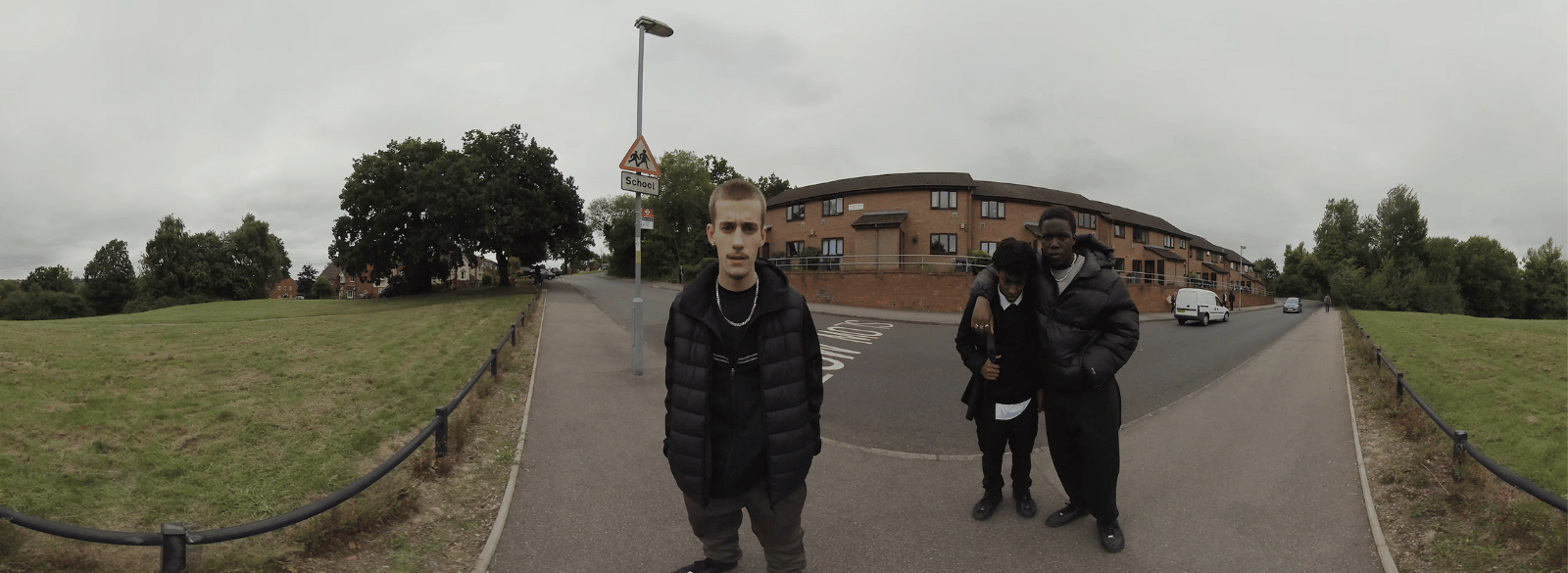Blog post by Serena Hadi, Head of Operations and Practice at Cornerstone VR
Knife crime is one of the most pressing issues facing young people in the UK today, and the statistics are sobering. Latest data from the Office for National Statistics (October 2024) revealed that knife crime has risen by 4% over the past year, reaching 50,973 recorded offences.
The 2024 Children, Violence and Vulnerability Survey(Report 1) from the Youth Endowment Fund, which surveyed over 10,000 teenage children (aged-13-17) in England and Wales found that younger teenagers aged 13-15 are more likely to carry weapons compared to those aged 16-17, and that nearly half (47%) of those who carry a weapon do so for self-protection.
Despite awareness efforts, the problem persists, and for those who work directly with young people, it’s clear that a new approach is needed—one that delves into the complex motivations behind these choices.
At Cornerstone VR, we’ve dedicated ourselves to creating impactful, immersive virtual reality films to explore the root causes behind youth knife-carrying. Our new 360-degree VR series doesn’t simply tell the stories of young people affected by knife crime; it puts viewers directly into their shoes.
Why Do Young People Carry Knives?
Through our research and close collaboration with police officers, educational institutions, social workers, and youth justice specialists, we’ve learned that the reasons young people carry knives are often deeply misunderstood.
Here are some of the critical insights gathered from Youth Justice Services (YJS) professionals who worked with us on this project:
- Misconceptions About Safety: Many young people believe that carrying a knife will make them “invincible” or provide protection in violent situations. Young people often don’t realise that carrying a knife actually increases their risk, not decreases it. They see the knife as a tool for self-defence rather than understanding how it can make them more vulnerable or escalate dangerous situations.
- Peer Pressure and Fear of Judgment: Young people often feel that speaking openly about their experiences with knife-carrying may incriminate them or result in trouble with the police. There’s also a significant element of peer pressure, with some youth believing that carrying a knife will make them look “scarier,” which they interpret as a form of protection, rather than recognising that it can make them a target.
- Limited Understanding of Consequences: Young people can be incredibly naive about the dangers associated with knife-carrying. Many don’t grasp the potential for life-changing injuries, such as the possibility of needing a colostomy bag after a stomach injury or losing the use of a limb. Educating young people on these realities in a way that resonates with them has been a challenge because much of the existing material feels disconnected or too adult-centric.
How Virtual Reality Can Shift Perspectives
We created this VR series to overcome these barriers to understanding. Unlike traditional methods, VR allows viewers to step into immersive scenarios that depict the complex, often frightening reality of carrying a knife. Through our VR films, we enable youth, professionals, and community members to feel the uncertainty, fear, and vulnerability that many young people experience daily.
With input from police officers, educational institutions, youth justice, foster agencies, and social care professionals, and most importantly, children and young people who are – or could be – impacted by knife crime, we conducted focus group discussions, engaged youth in feedback sessions, and even had young people review scripts and scenes for authenticity
This collaboration has ensured that our VR content reflects real situations, realistic environments, and genuine language that resonate with young viewers. By including youth in the development process, we’ve created a tool that is not only informative but also authentic and engaging.
Practical Applications and Future Goals
Our VR films are designed to be used in various settings, from youth justice programmes to schools and direct support for families, as a resource for intervention and discussion.
For practitioners, these films are a powerful resource that can help shift difficult conversations around knife crime into a more empathetic and understanding space. By using VR, we open the door for young people to process traumatic issues in a controlled, safe environment and make more informed choices about their own safety.
Looking ahead, we hope this series will be the beginning of a longer partnership between Cornerstone VR, youth justice services, education providers and other organisations dedicated to youth safety. By continuing to develop VR content with and for young people, we aim to create an ongoing resource that adapts to the evolving needs of youth and society.
We are incredibly grateful for the expertise and input of youth justice professionals and the courage of the young people who shared their experiences to make these films a reality
For more information, please visit www.cornerstonevr.co.uk/cornerstone-vr or reach out at info@cornerstonevr.co.uk.


